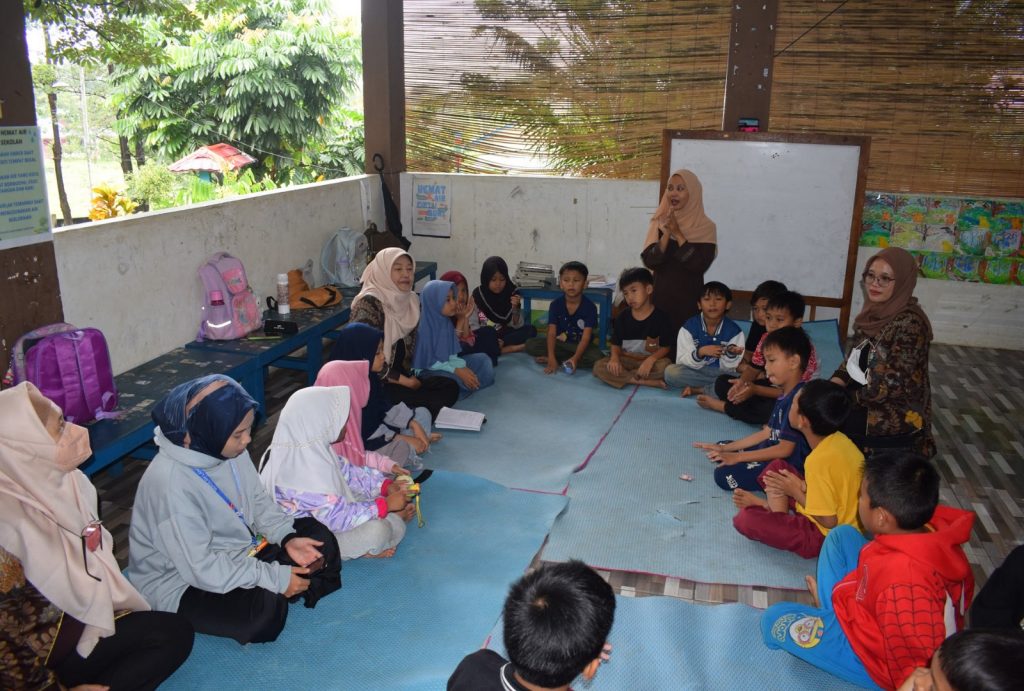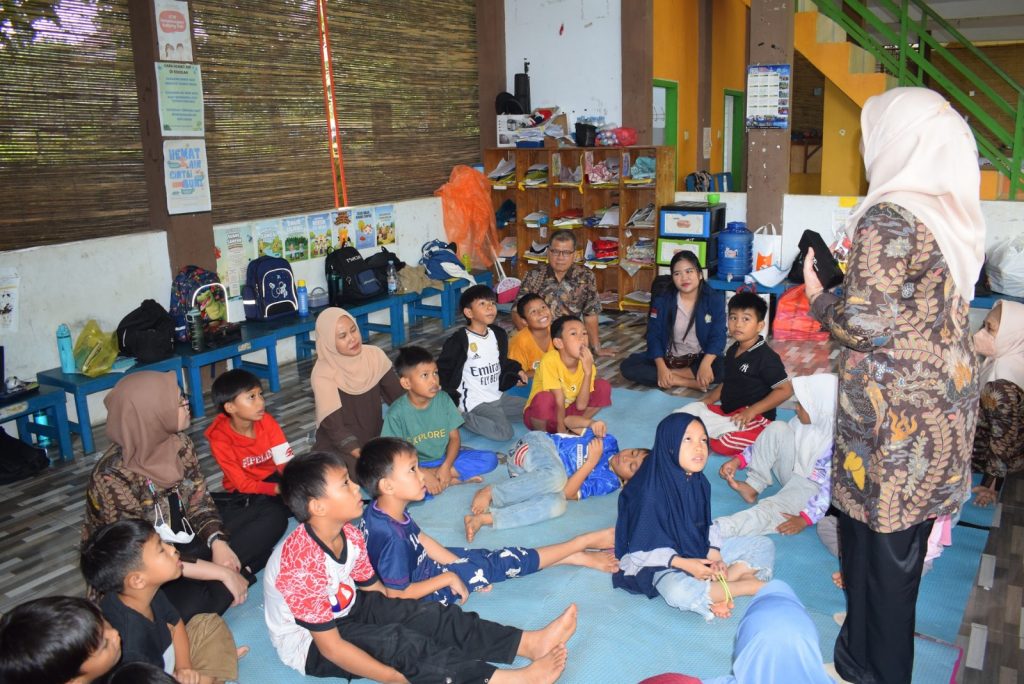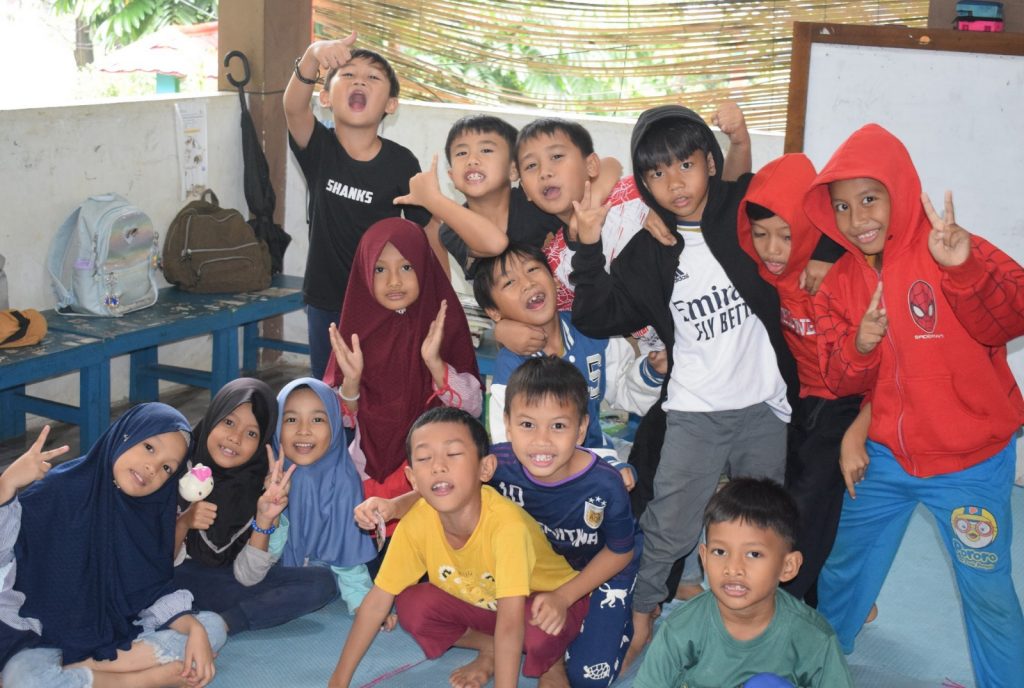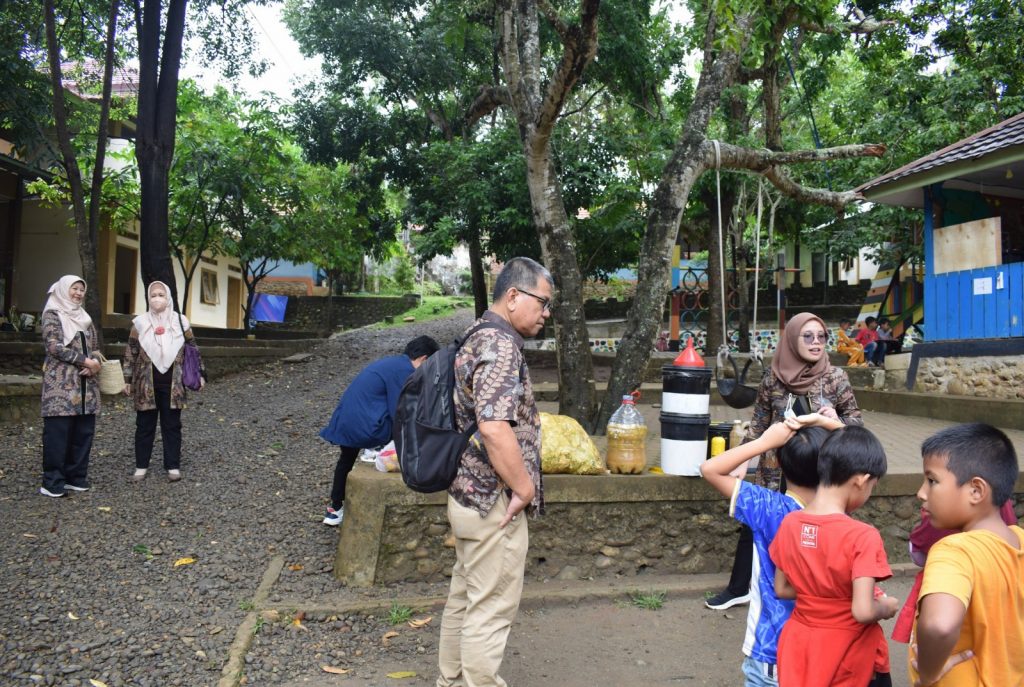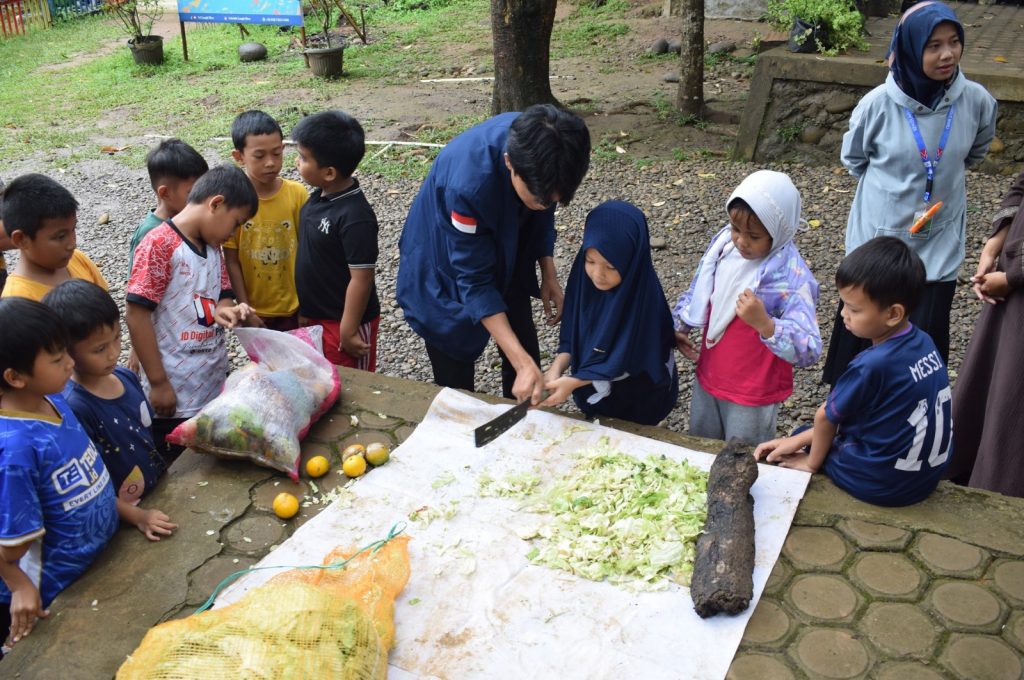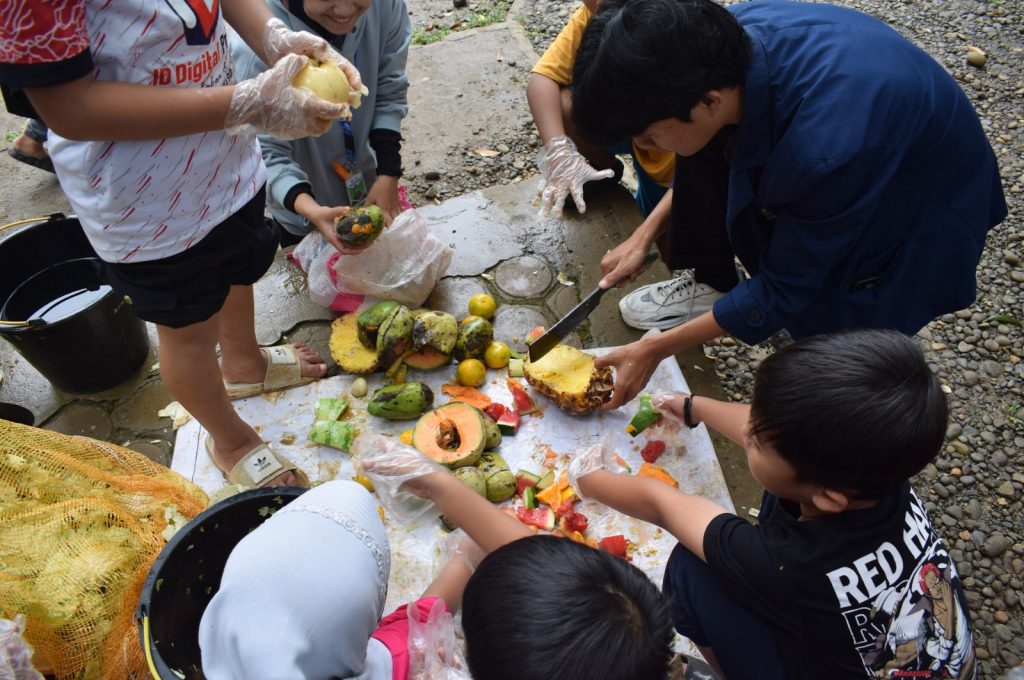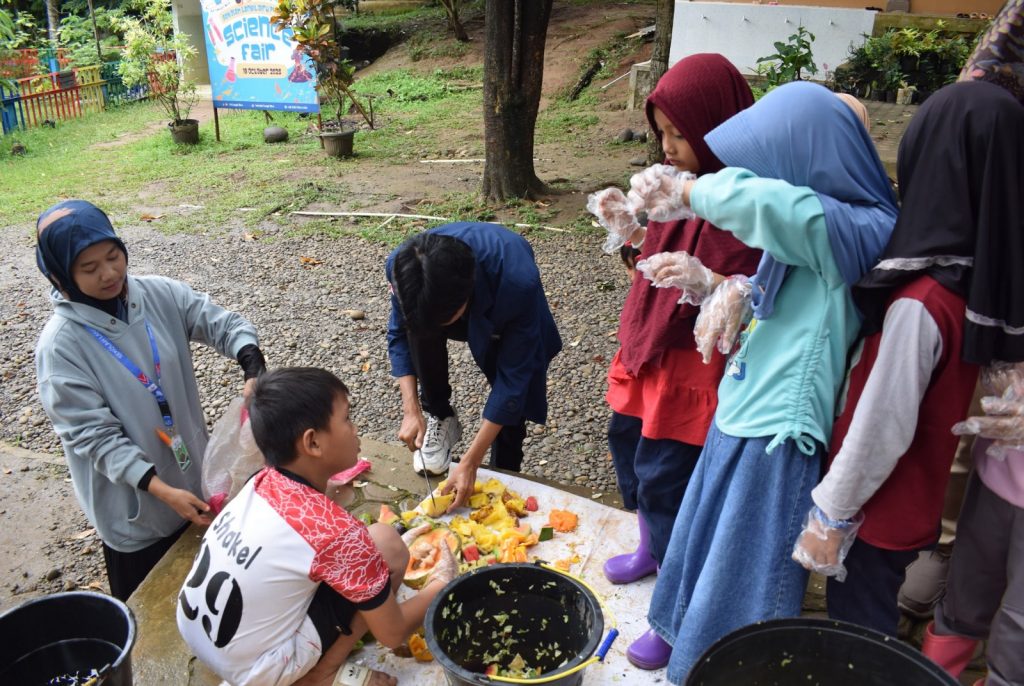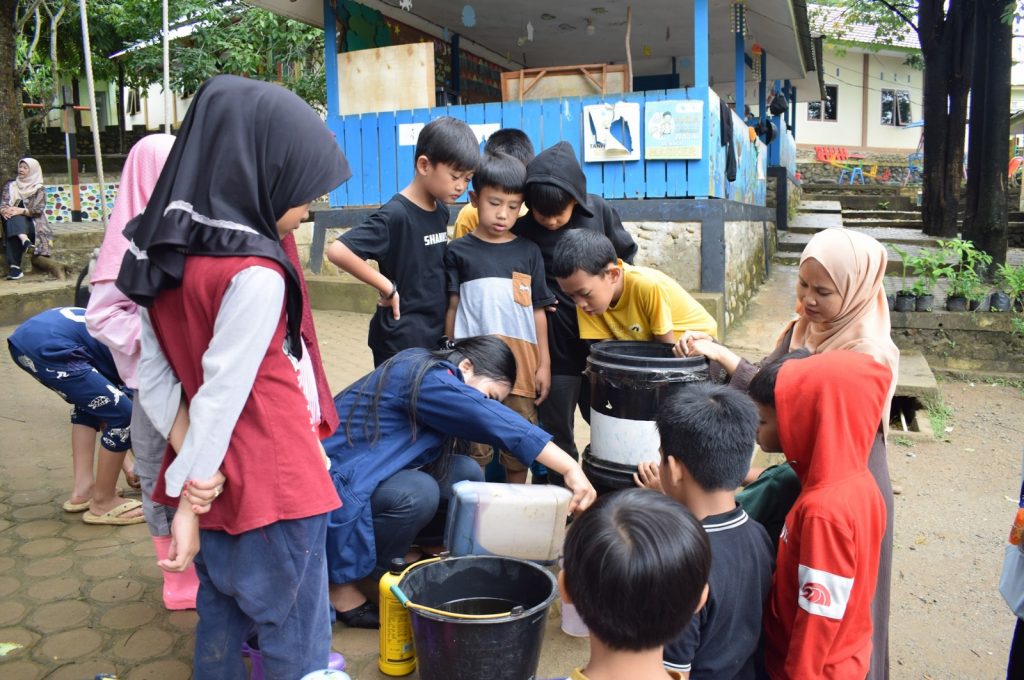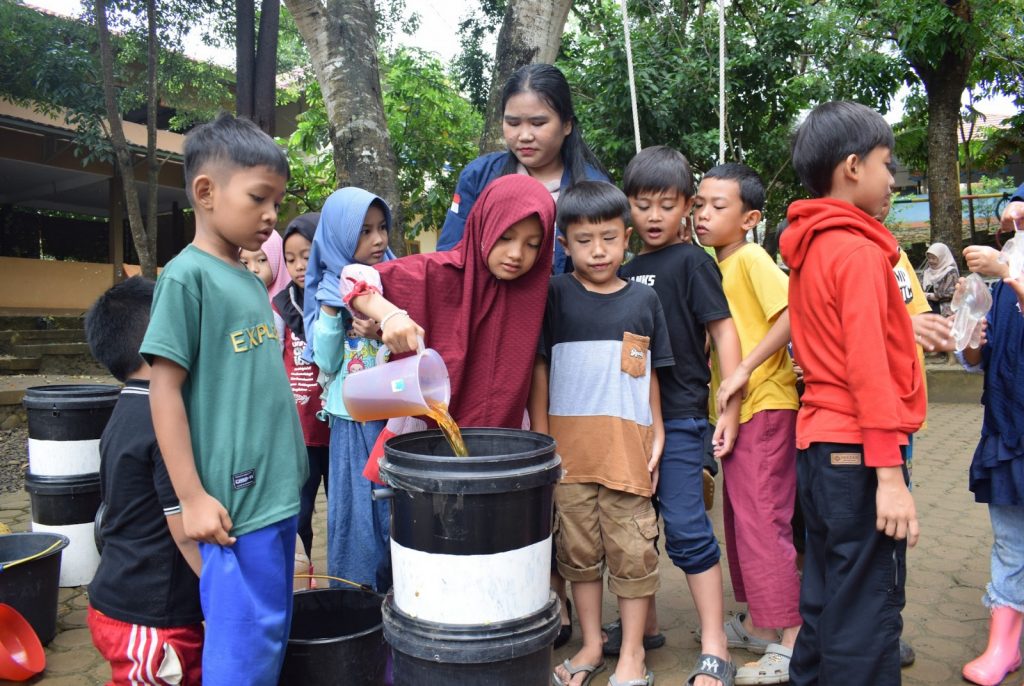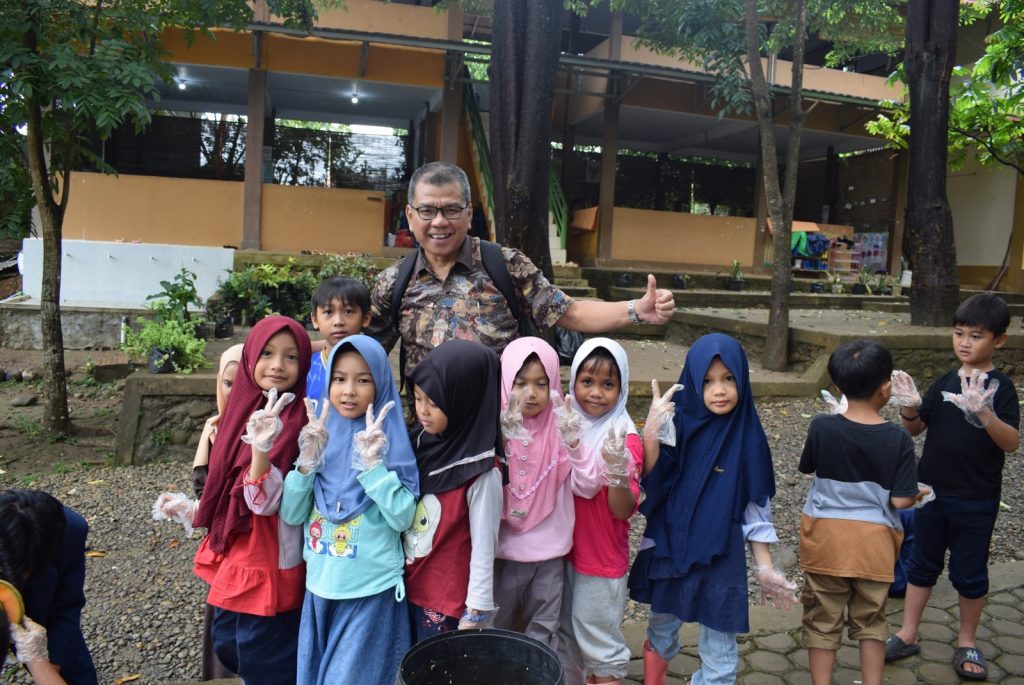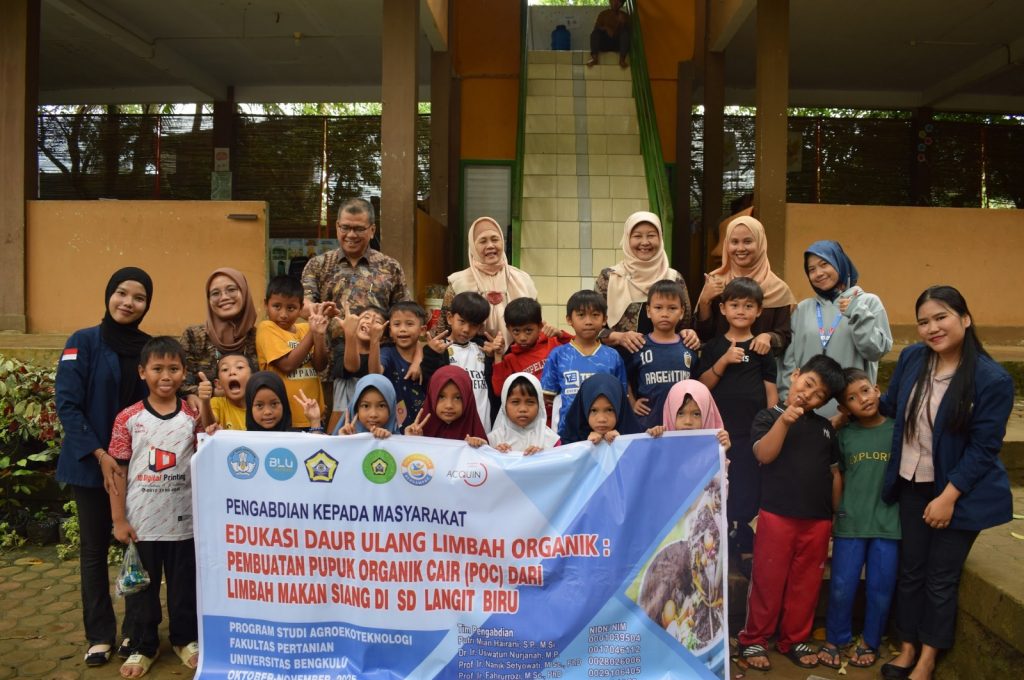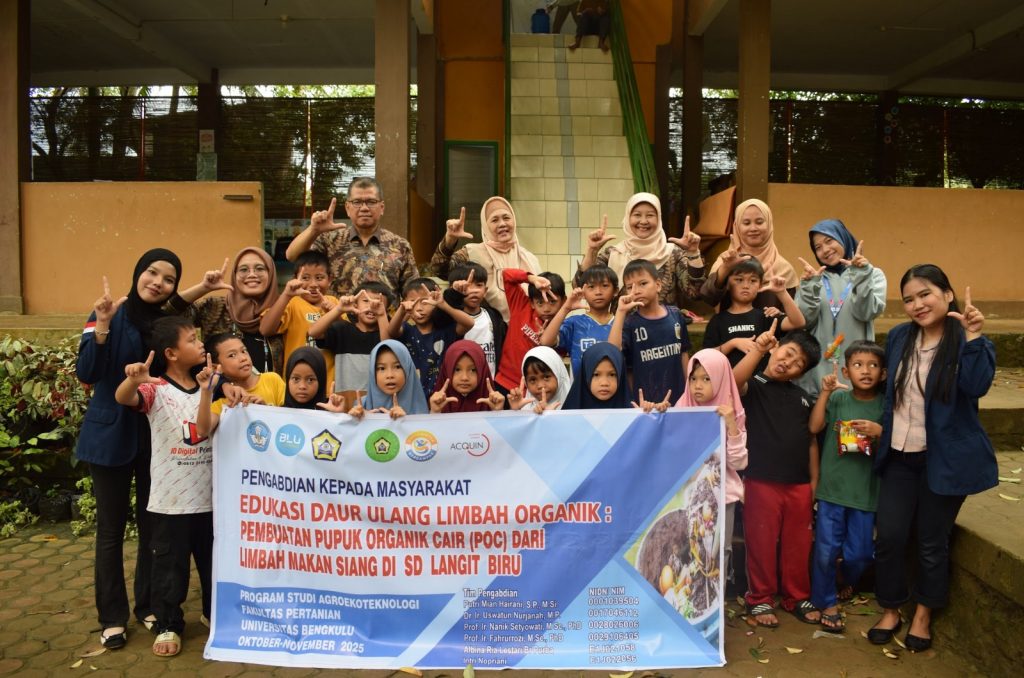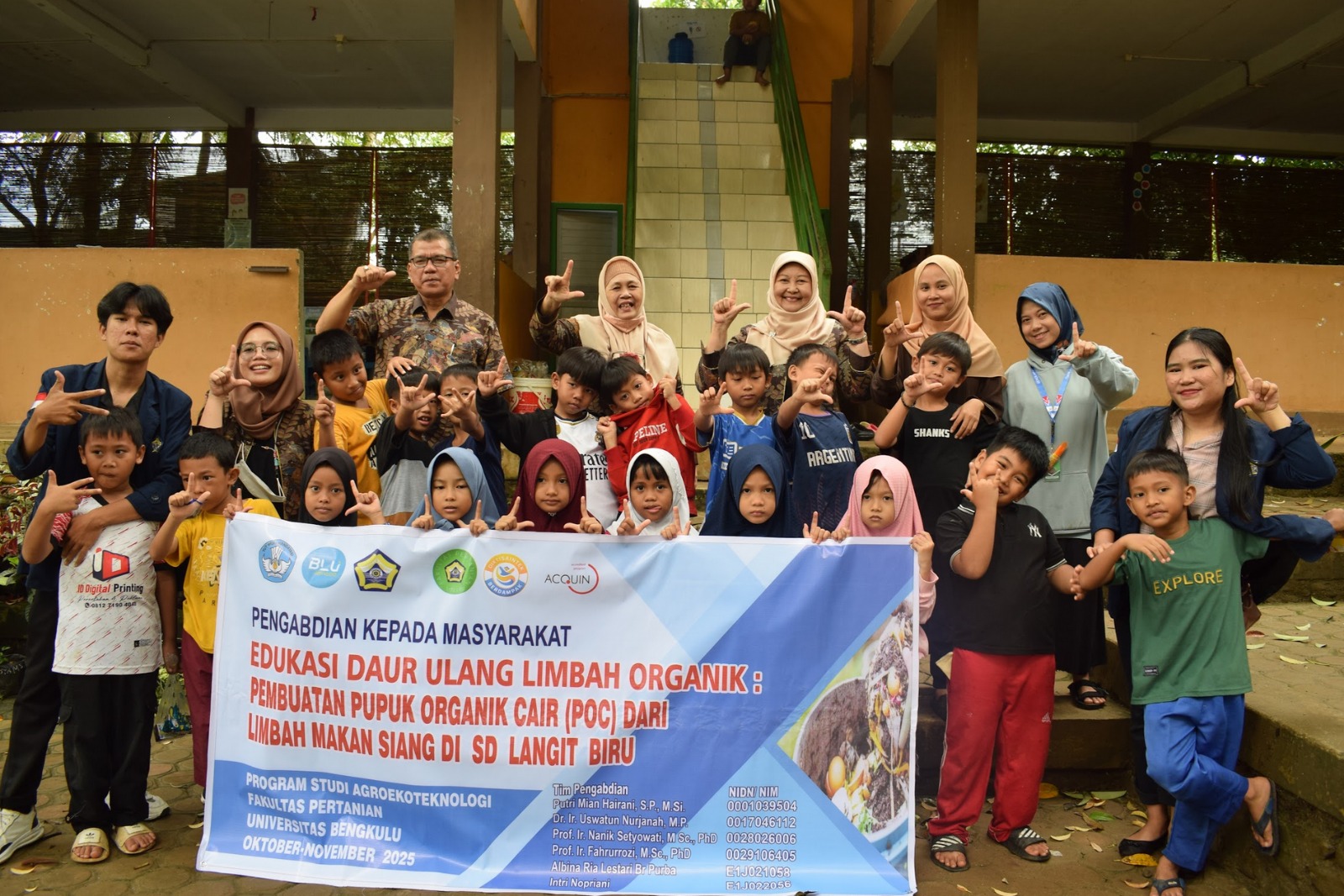
UNIB Agroecotechnology Team Empowers Elementary Students Through Organic Waste Recycling Education
Bengkulu — October–November 2025.
The Community Service Team (PkM) of the Agroecotechnology Study Program, Faculty of Agriculture, University of Bengkulu, successfully carried out a training program titled “Recycling Organic Waste: Producing Liquid Organic Fertilizer (POC) from Lunch Waste at SD Langit Biru.” This activity aims to build environmental awareness at an early age through hands-on learning and simple scientific practice.
The program was led by Putri Mian Hairani, S.P., M.Si., accompanied by Dr. Ir. Uswatun Nurjanah, M.P., Prof. Ir. Nanik Setyowati, M.Sc., Ph.D., and Prof. Ir. Fahrurrozi, M.Sc., Ph.D., with support from two student volunteers. A total of 20 second-grade students and 2 homeroom teachers participated actively in the sessions.
⭐ Stage I: Environmental Education and Waste Sorting
The first stage focused on interactive learning about organic and inorganic waste. The team introduced the basic concept of waste classification using child-friendly booklets, colorful illustrations, and an engaging “learn-while-playing” approach.
Students learned to:
-
identify the difference between organic and inorganic waste,
-
recognize common waste items produced during lunch time,
-
understand why food waste can be recycled into something beneficial.
This stage emphasized environmental literacy and encouraged students to think critically about daily waste generation. Students eagerly completed activity worksheets and shared their answers with enthusiasm.
⭐ Stage II: Hands-On Practice of Making Liquid Organic Fertilizer (POC)
The second stage provided students with a direct experience in producing Liquid Organic Fertilizer (POC) from leftover fruit and vegetables. The activity took place outdoors in the school yard, enabling students to explore real organic materials and observe the fermentation process closely.
Guided by lecturers and student assistants, the children practiced:
-
chopping fruit and vegetable waste,
-
mixing the organic material with brown sugar and EM4 starter,
-
preparing fermentation containers and sealing them for the maturation process.
This hands-on activity strengthened students’ understanding of sustainability, recycling, and simple biology, making science learning both fun and meaningful.
⭐ Program Outputs
To support long-term impact and academic documentation, the program produced several official outputs:
-
Copyrightable Educational Poster (HKI)
-
Official News Article for the Website
-
Educational Video Uploaded to YouTube
These outputs reflect the commitment of the Agroecotechnology Study Program to community empowerment and scientific dissemination.
⭐ Impact and Future Continuity
Teachers and school leaders expressed strong appreciation for the program, noting improvements in the students’ environmental awareness and waste-sorting behavior. The training is expected to inspire continuous green practices at SD Langit Biru, especially in managing canteen waste.
The Agroecotechnology Study Program remains committed to promoting sustainability, environmental education, and community empowerment, ensuring that scientific knowledge reaches local communities and contributes to real-world change.
Stage I
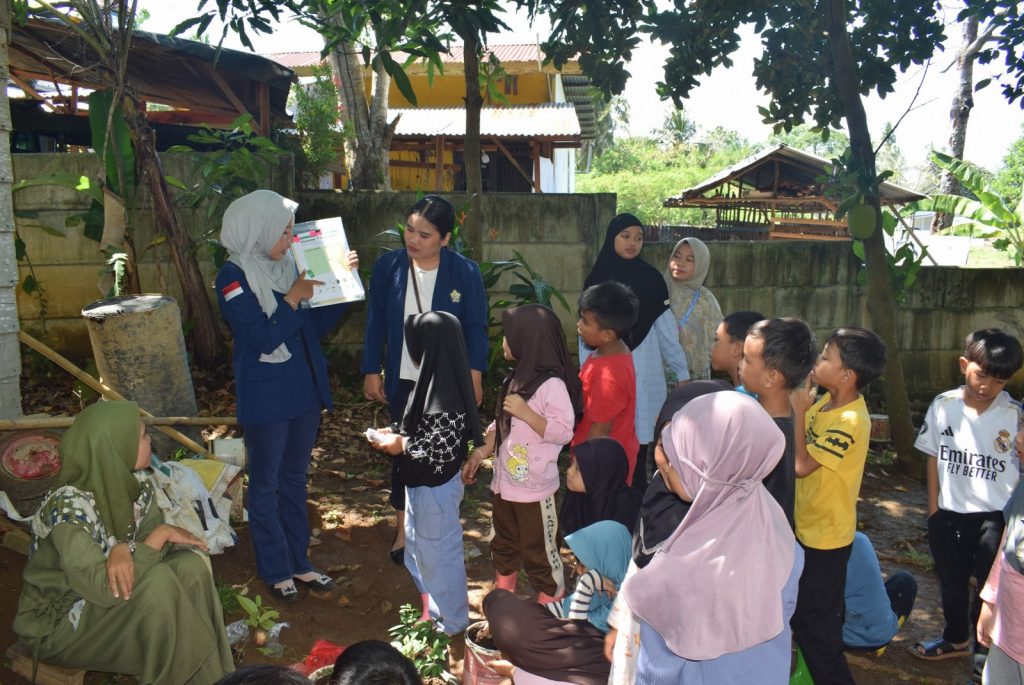
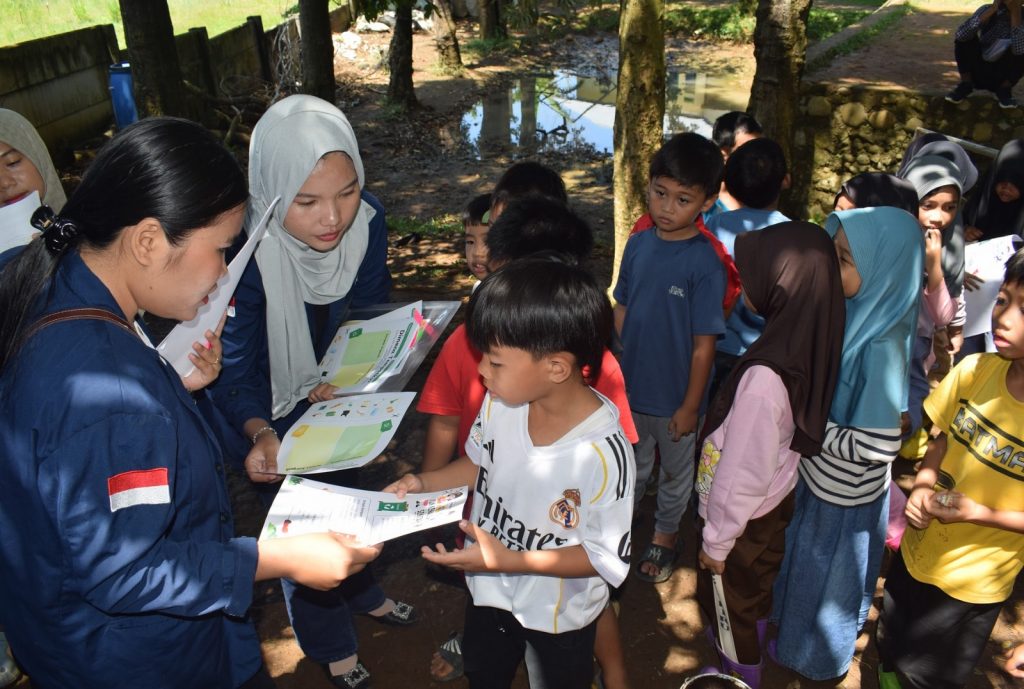
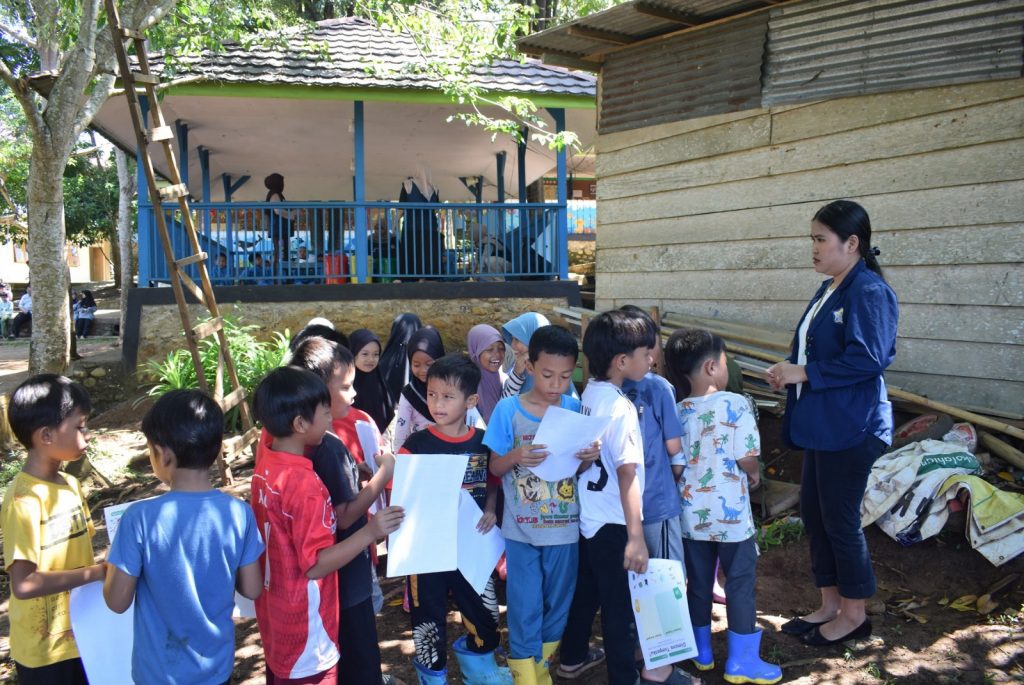
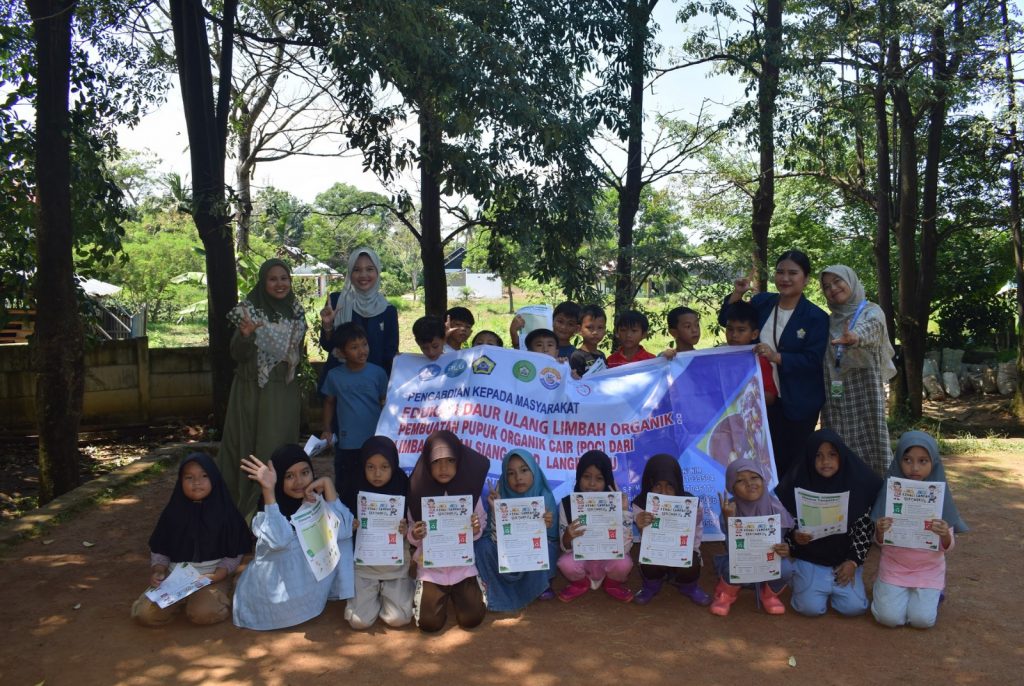
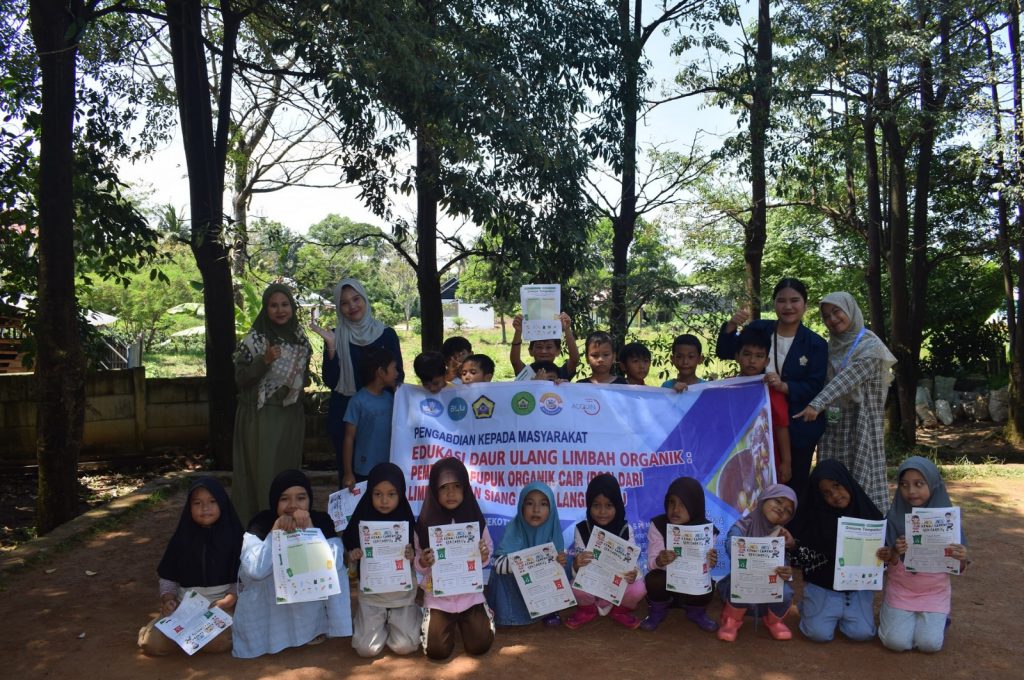
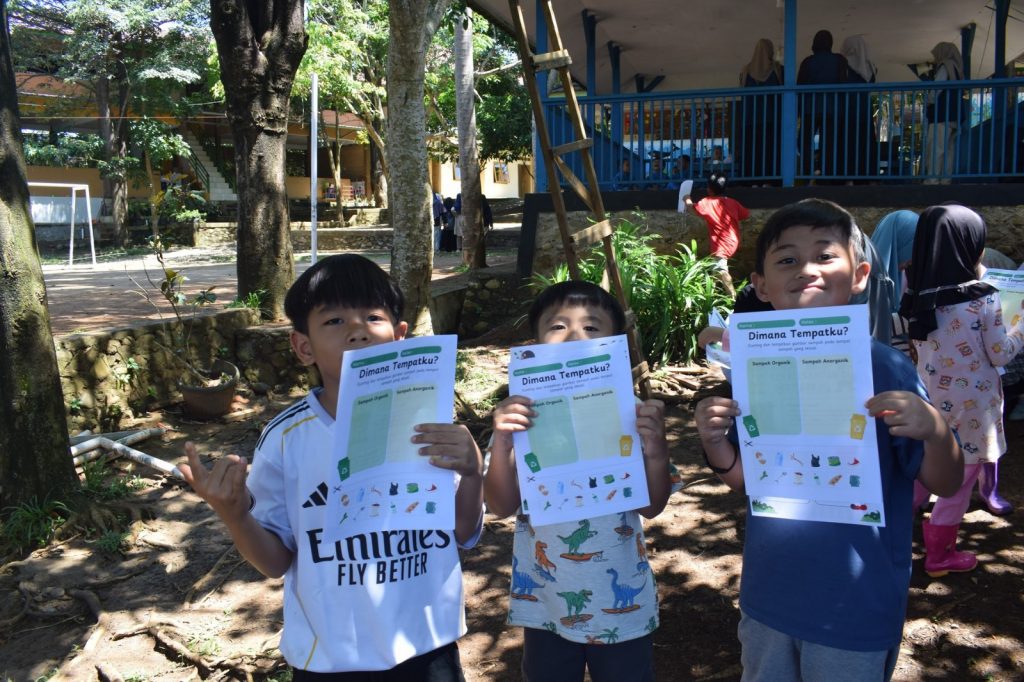
Stage II
